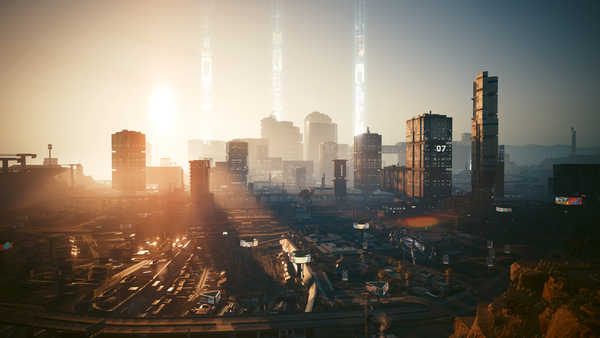An Oral History of the Calle Cinco de Mayo Massacre

by Frank Gattis, Junior Aggregator, Banks Media Productions
Living in America means taking things for granted. We assume there will always be water to drink, food to eat, and electricity to keep the lights burning. We expect roads to be in good repair, buildings to remain standing, and VNet to keep humming along. But what happens when the foundation upon which we build our lives is shattered by an act of terrorism? What happens when we look to the sky and see planes diving for the ground?
The horror of Calle Cinco de Mayo 2009 was not in the loss of 7,057 lives. It was in the shattering of our expectations about what was possible and impossible, because a world in which planes can simply fall out of the sky, anything — even the worst horror of nightmares — is possible.
On the anniversary of the most devastating terrorist attack on American soil in our history, we look back at the events of that fateful day through the eyes of those who lived it.
06:57 am, Sacramento, California. Paul Shear [name changed] is nearing the end of his shift at the primary data hub at Vinestead International headquarters.
“We had actually been watching the worm all morning. It doesn’t matter how good a hacker thinks he is, he’s not just going to suddenly show up inside our network unannounced. The traffic coming from a secondary NOC in Burbank had been steadily rising for about two hours. Normally, when we see such a concentrated stream, we’re able to pinpoint where it’s headed. This stream, however, seemed to break off at the junction and head in a thousand directions at once. There simply weren’t enough of us to track it. Even the Lassister mods couldn’t keep up with it.”
08:15 am, Denver, Colorado. Ella Soledad is working at Station 3 in the Denver International Airport’s control tower.
“At first, we thought it was just a normal glitch. We were only in year two of the new Vinestead software, so we had our legacy equipment still running in parallel. It wasn’t unheard of for VinesteadATC to go offline completely, leaving us to plot the traffic manually on the green and blacks. This time, the system didn’t come back up after a reboot. I remember hearing our supervisor on the phone with Vinestead Support while we scrambled to reposition ourselves on the older equipment. Half an hour went by, and VinesteadATC remained down. That’s when the green and blacks started to flicker.”
09:28, Austin, Texas. George Fonseca is landing Flight 1282 non-stop from Honolulu at Austin Bergstrom International Airport.
“VinesteadATC had us in a smooth descent until about one mile out, then the whole thing just went to shit. Flight systems failed over to manual, but in a 777, you might as well have tried to steer the plane by wishing. We lost engine one almost immediately. Luckily, I had a good co-pilot, Scott Coleman [ed. note — name included at request of interviewee]. He was able to keep us limping along as we finished our descent, which by that time we already knew was going to end badly. We thumped that 777 into the tarmac hard enough to break the nose off at row 20. The rest of it, I can’t really remember.”
07:48 am, San Diego, California. Kaili Zabora addresses the country live on the Lincoln Continental media feed.
“You thought you were immune. You thought because you’re the biggest that you’re also the baddest. How do you feel now? How does it feel knowing Calle Cinco is in your house, going through your drawers? What are we going to find buried under your socks, Arthur [Sedivy, CEO of Vinestead International]? The truth about the fall of The Net? Transcripts of your under-the-table meetings with high-ranking government officials to get the Guardian Angel bill passed? You built your network on lies and deceit. Today, we’re taking that network back — [transmission ends]”
08:58 am, Denver, Ella.
“You could hear a pin drop in the control tower as everyone’s stomachs compressed. The black and greens went dead. We were blind. Panicked voices spilled out of our headsets, but there was nothing we could do. At first, there was a small part of me that believed everything would be okay. We had competent pilots in the air. They still had radio contact. They could coordinate. But then we saw the smoke to the west. Then to the east. Nobody said a word until a UPS cargo plane took out the Jeppesen Terminal and the pedestrian bridge. Then everyone everyone screamed.”
08:23 am, Sacramento, Paul.
“There’s a certain amount of pride and bravado that every network technician needs to have. We believe the network is our home, and no one comes into our home without our permission. Usually that means stomping on some zero-day exploiter looking to steal social security numbers or customer records. But after hearing Calle Cinco on the feeds, we knew we were dealing with something else. Our network ground to a halt for the first time in my memory. We know now how the worm was able to propagate, how we could never get ahead of it, but at the time, we were basically chasing our tails. That normally would have made me angry as hell, but mostly I was in disbelief. How could Calle Cinco do this?”
10:30 am, Austin, Texas. Angel Rodriguez is a first responder to Flight 1282’s crash site at the west end of the runway.
“It wasn’t the first time a plane had crashed at ABIA, but it was since I started working there. We’d trained, you know, so we had an idea about what to do. We deployed everything at the same time. Every fire truck. Every mobile medical. We were all rushing along the side of the runway when two planes collided above us. The truck I was riding in veered off onto the main runway, over it, and into the median. I smelled jet fuel. I felt the heat. Planes kept trying to land. Some made it, some clipped the others. They thought they were safer on the ground. They were wrong.”
08:45 am, Sacramento, Paul
“The official Vinestead story is that an engineer named Julius Parker figured out how to stop the worm, but nobody on my crew bought that. He wasn’t a network guy, didn’t know the ins and outs. In my opinion, the worm just gave up. One second it was there, gumming up the works, and the next it dissolved like a puff of smoke. You know what I think? I think Calle Cinco pulled it. They saw what was happening out there and they fucking pulled it. I guess Kaili Zabora felt she had killed enough Americans by then.”
09:54 am, Denver, Ella
“VinesteadATC came online a few minutes before ten, and it was chaos in the skies. To my team’s credit, they put their asses back in seats and went to work. In just fifteen minutes, we had rerouted every flight in our airspace. Total planes lost under our watch? Three. Just three. All manufactured in the last year, all with supposedly rock-solid Vinestead guidance systems. We asked the planes that could hold to do so while we watched the feeds for an update.”
09:13 am, San Diego. A visibly shaken Kaili Zabora goes live on Lincoln Continental. Fledgling media feed The White Line dupes the story on the east coast.
“Do you see? Do you see what happens when you let Vinestead control everything? Now you have to defend them, because if you don’t, Americans die. Real people died while Arthur Sedivy sits in his tower. Wake up, America! No company should have this much control of our lives. What is it going to take for you to understand? HOW MANY PEOPLE DO I HAVE TO KILL?”
09:30, Sacramento, Paul.
“I got into the VinesteadATC code as soon as I could, and that’s when we found out that sixteen records had been erased. That’s sixteen real connections to real planes. They relied on vATC for everything, and the program simply forgot about them. Why Calle Cinco decided those sixteen had to go, we’re still not sure. I can’t even imagine what it was like to have been a passenger in those planes. Or the pilots of them. These were new birds, fully automated. When the software went down, so did the planes.
10:40 am, Denver, Ella.
“Technically, everything was back to normal by 10:30, but even now, a year later, everyone knows things aren’t the same as they were before. We tried our best to keep calm, perform our duties, and get the remaining planes out of the air. It was the uncertainty of what might happen next that got to all of us. When the last plane was down, we all let go of the same breath. Many of us cried. All of us watched the aftermath play out on the feeds. We had to, even as the body count kept going up. I hate to admit it, but there were some of us who thought Kaili Zabora had a point. Vinestead controlled everything.”
7,057 American lives were cut short on May 5, 2009 by Calle Cinco and its defacto leader Kaili Zabora. She has made no appearances since then and released no statements. A TSA recommendation made in November of 2009 was rejected by the FAA as “too costly.” As of today, more than a quarter of active aircraft are using VinesteadATC as their sole means of control.
Anniversaries for events like these are often somber. Stories like this are written, documentaries choke the feeds. In our hearts, we feel the combined sadness of an entire country.
But at the same time, we feel its terror as well.
We can only hope and pray that Kaili Zabora feels heard, and that her next act of terrorism has better aim.
We’re okay with you hating Vinestead.
Just leave us out of it.
FG/2010/05/05




